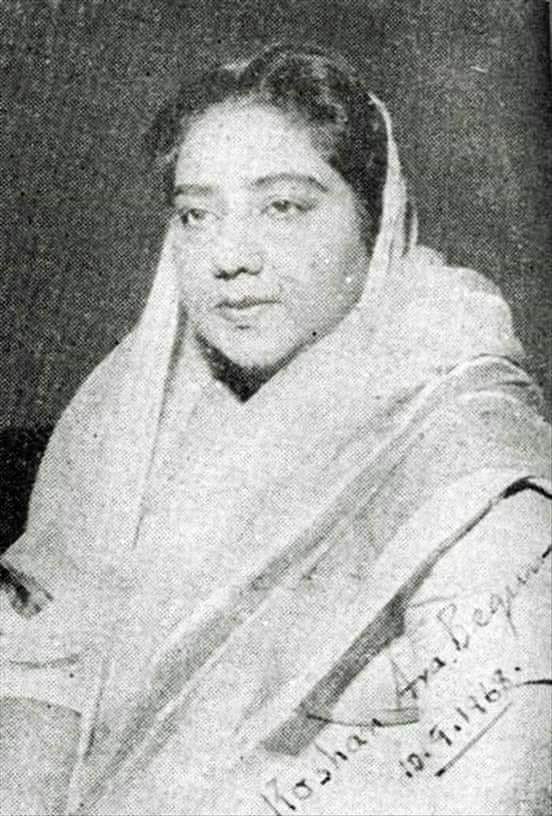Vocalist Roshan Ara Begum

Remembering Eminent Hindustani Classical and Semi-Classical Vocalist Roshan Ara Begum on her 38th Death Anniversary (6 December 1982) ••
Roshan Ara Begum (1917 - 6 December 1982) was a Hindustani classical vocalist. She was famous for her singing in Khyal, Thumri and Qawwali genres of Indian Music. In Pakistan she is revered as Mallika-e-Mauseeqi (Queen of Music). As the daughter of Ustad Abdul Haqq Khan, Roshan Ara linked through her cousin Ustad Abdul Karim Khan to Kirana Gharana.
Born in Calcutta in or around 1917, Roshan Ara Begum visited Lahore during her teens to participate in musical soirées held at the residences of affluent citizens of Chun Peer in Mohalla Peer Gillaanian at Mochi Gate.
During her occasional visits to the city she also broadcast songs from the then All India Radio station, and her name was announced as Bombaywali Roshan Ara Begum. She had acquired this popular nomenclature because she shifted to Mumbai, then known as Bombay, in the late 1930s to live near Ustad Abdul Karim Khan, from whom she took lessons in Hindustani classical music for fifteen years.
Her performance in Chun Peer's abode in early 1941 pleasantly surprised local heavyweights and connoisseurs with her expertise in rendering classical compositions. In Mumbai, she lived in a sprawling bungalow with her husband Chaudhry Mohammed Hussain, a police officer.
Possessing a rich, mature and mellifluous voice that could easily lend itself to a wide range of intricate classical music pieces, Roshan Ara employed her natural talent in the promotion of the art, which requires a high degree of cultivation and training. Her singing features a full-throated voice, short and delicate passages of sur, lyricism, romantic appeal and swift taans. All these flourishes were combined in her unique style that reached its peak from 1945 to 1982. Her vigorous style of singing was interspersed with bold strokes and layakari.
Migrating to Pakistan in 1948 after the partition of India, Roshan Ara Begum settled in Lalamusa, a small town from which her husband hailed. Although far away from Lahore, the cultural centre of Pakistan, she would travel back and forth to participate in music and radio programmes. Visual and audio recording-devices have preserved the richness of Roshan Ara's music — which often overflowed with tonal modulations — its sweetness and delicacy of gamaks and her slow progression of raags. Roshan Ara Begum also sang some film songs, mostly under music composers like Anil Biswas, Feroze Nizami and Tassaduq Hussain. She sang for well-known films such as Pahali Nazar (1945), Jugnu (1947), Qismat (1956), Roopmati Baazbahadur (1960) and Neela Parbat (1969).
She died in Pakistan in 1982 at the approximate age of sixty-five.
On her Death Anniversary, Hindustani Classical Music And Everything pays rich tributes to the legend and are grateful for her contributions to the Hindustani Classical Music. 🙏💐
लेख के प्रकार
- Log in to post comments
- 100 views
